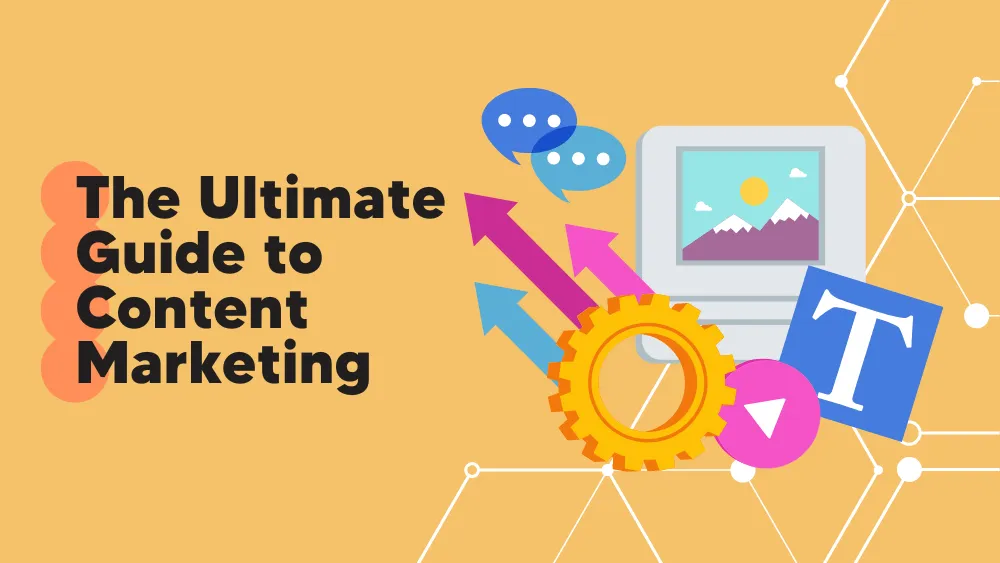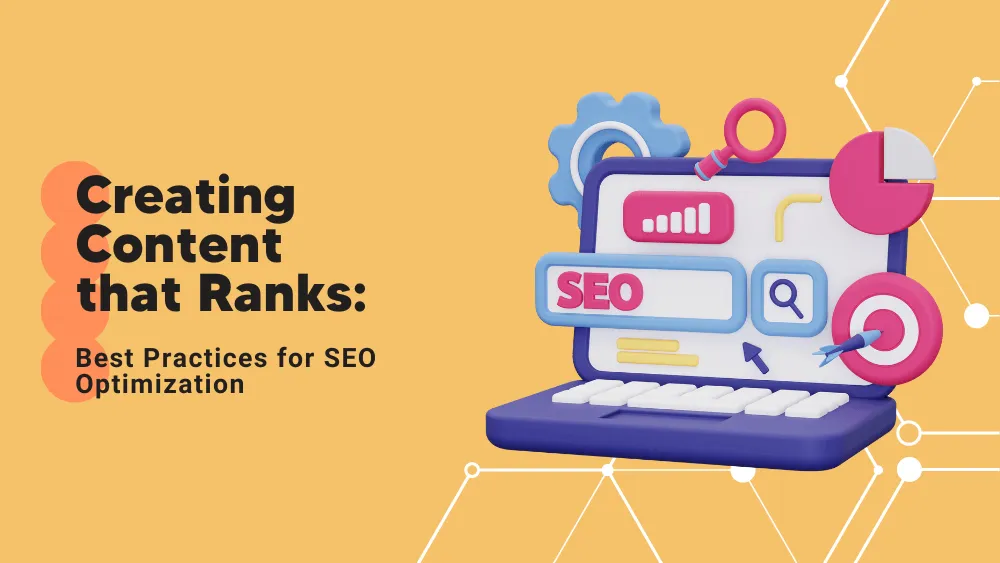
Best Content Marketing Software
What is Content Marketing Software?
Content marketing software is a collection of tools and processes that lets you automate content marketing, including planning, creation, distribution, and publishing. This software enables marketers to manage content creation to impact sales growth positively. To ensure time-saving, content marketing software deploys a lot of automation from content workflow creation to publishing.
On the other hand, content marketing is a strategic approach to ensuring the efficient and timely creation and distribution of valuable and relevant content across various channels, including social media, websites, podcasts, and press releases. To understand what content marketing means, you need to learn about its three pillars:
- Engage
- Educate
- Empower
Compare Content Marketing Software
Leadpages
TikTok for Business
Similarweb
Semrush
QuillBot
Sprout Social
Walls.io
Moz Pro
Instapage
Table of Contents
Content marketing relies heavily on engagement. Without engaging your target audience, your content doesn’t serve its purpose. That’s why it is critical to understand your audience first, learning about geographical and demographic details such as age, occupation, gender, etc.
Next, you should educate your audience by providing them with value. As a business, don’t just focus on selling but also on educating. Readers should know that your content makes their life easier to feel worthy. This will also build brand trust. Lastly, it would be best if you empowered them to make informed decisions.
You can find content marketing platforms, content software, and content marketing tools in the market.
Content marketing platform
They offer a complete feature-set where marketers can do many things from a centralized place. For example, marketers can use an editorial calendar to plan and promote content, manage team members, and communicate with each other. They can then publish the content and analyze the results using metrics. Example: CoSchedule, Kapost, and Contently.
Content marketing software
If you are a content marketer who wants to do specific tasks, then content marketing software is for you. For example, you may want to create a content calendar or do social media campaign. Examples: BuzzSumo, OutGrow, and SproutSocial.
Content marketing tools
Next, we have tools. Under this category, you’ll find low-cost single-function or free tools that are simple to use. Examples include Email Subject Line Tester, HubSpot Blog Ideas Generator, and Headline Analyzer Studio.
Types of Marketing Content Software
Content marketing software specializes in doing one thing and doing it well. That’s why you’ll find multiple types of content marketing software. But, broadly, content marketing software has the following types:
Content marketing calendar software: Content marketing calendars allow marketers to manage their content and keep everything organized. With it, they can plan deadlines, assign tasks to team members and ensure that there is no last-minute rush. This improves content consistency and the overall efficiency of content marketing. Example: CoSchedule Marketing Calendar.
SEO software: For teams looking to rank, SEO software is a must. It enables them to learn about keywords and create content around it. If your team doesn’t use SEO tools, they’ll find themselves creating content that most people don’t read. Example: Ahrefs.
Social media software: Social media is enormous, and you need proper social media software to capture its reach. Here, you get to automate social posts and do analytics to learn how the social posts perform. Example: Hootsuite
Email marketing software: Email marketing gives you the best ROI. With email marketing software, you can design emails, create A/B testing, schedule emails, and measure performance for the best possible results. Example: MailChimp
Video marketing software: If your business relies on videos, you need to use a video marketing software. This software lets you do everything, including planning, creation, and publishing. Example: Wistia.
Content management software: As a marketer, you also need content management software to streamline the project. It includes managing project timelines, team productivity, and less clutter. Example: Trello
Content marketing analytics software: The best way to learn if your content marketing effort works is to use analytics software. With the right content marketing analytics software, you can do analytics for your blog, website, social media, and email marketing. Example: Google Analytics.
What can businesses do with marketing content software?
Content marketing software is the core of content marketing. Businesses that don’t use the tool lag behind the competition. With the right content marketing software, companies can do the following:
- Organize their content calendar to bring more consistency when publishing content.
- Assign tasks to team members and keep everyone in the loop.
- Search for proper keywords to target and write content based on it.
- Automate social media posts and analytics to see how well they’re doing.
- Manage email marketing, including creating and designing emails, doing A/B testing, scheduling emails, and analytics.
- Use video marketing software to manage video creation and publishing.
- Ensure proper content management, including team management, project management, and productivity.
- Learn how well your content marketing uses analytics software across different mediums.
Benefits of using a Content Marketing management system
If you use a content marketing management system, you’re bound to get many benefits. Some of the benefits include:
- Improved brand reputation: By efficiently planning, creating, and publishing content, you can improve your brand reputation. It requires creating high-quality targetted content which offers value to the audience.
- More social traffic: A content marketing management system lets you streamline your publishing with automation, bringing more traffic.
- Better conversion rates: You can expect to get an improved conversion rate with the use of optimization tools. The channel analytics also help you understand your audience better and create content that can convert well.
- Greater SEO reach: If you use the SEO tools correctly, you’ll see an improved reach on Google. This way, you can get organic results.
- Streamline content marketing strategy: A centralized system can help you streamline your content effort across teams with custom workflows and approvals.
- Understand better with analytics: Learn how your content performs on different channels and mediums. From this, you can get a return on investment(ROI).
Why Content Marketing software is important
Businesses need to be as efficient as possible. To do so, they need tools. Content marketing software simplifies content marketing and gives marketers the tools to carefully plan and execute different aspects of content marketing.
It is essential to create high-quality valued content that builds audience trust. By using content marketing software, businesses stay on top of the whole process and keep everything in check.
Marketers also save a lot of time by using automation. For example, social media posts can be automated to ensure better results. There is also email marketing which improves conversions.
All of these are captured and analyzed through its analytics feature. Overall, content marketing software embodies the whole content marketing effort and streamlines it to get the best results for the business.
The best marketers create, manage, and share content through tools, software, and platforms. After all, they want to invest their brilliant minds to efficiently capture the target audience’s attention without needing to do everything manually. As a result, there are 100s of content marketing software spanning different use-cases, including SEO, social media, video marketing, analytics, project management, design, writing, etc.
With the ever-increasing demand for content across different channels, it is vital to know what works for you and what doesn’t. If you look into stats, content creation is ubiquitous, with over 60% of marketers creating one content piece daily. And, why not, as content marketing generates three times more leads than other forms of marketing effort. Businesses are also keen on creating content, with over 93% of B2B businesses using content marketing to reach their goals.
Key features of Content Marketing Software
There’s plenty of content marketing software out there. And, if you take its different types, it becomes complex very fast. Until and unless you’re not picking up content marketing software for a specific task or process, content marketing software should have the following key features:
- Content creation workflow: Create a complete workflow that includes proper content calendar creation, task assignment, submission, editing, and publishing.
- Email Marketing: Do comprehensive end-to-end email marketing and improve conversions.
- Content collaboration: Collaborate with team members to create high-quality content on time.
- SEO tool: Search for keywords that rank and create content around it.
- Multichannel campaigns: Run various campaigns across different channels for the best reach.
- Publish scheduling: Schedule the content publication across multiple channels.
- Workflow management: Improve content marketing strategy by creating a seamless workflow across the team for consistent content publication.
- Audience targeting: Get to know your audience before you can target them.
- Analytics: Understand how your content campaign is performing through analytics.
How much does a content marketing management system cost?
A content marketing management system’s cost depends on its type. However, you’ll find most software to be monthly. So if you’re looking for the range, you’ll find it between $9 to $999.
In this price range, most systems provide three tiers, where the first tier starts at $9 and goes up to $30. The next tier starts at $30 to $99, with the final tier from $99 to $999. So if you’re a small to medium-scale business, you can efficiently operate with the first two tiers that range from $9 to $99.
However, you need to get the highest tier if you’re looking for more scalability and enterprise-level services. This will give you access to advanced features such as omnichannel support, integration, templates, and large-scale publishing tools.
What should you check when buying Content Marketing Software?
Getting content marketing tools can be challenging. This is not only because of the types of content marketing software but also the number of software, platforms, and tools available in the market. On top of that, you must also correctly self-evaluate your needs before deciding which content marketing software suits your needs better.
Know your business
The first step is to learn about your organization. You can do so by asking the following questions:
- How much content do you produce every week?
- What is the content team’s strength? Are they organized well?
- Do you struggle with content planning?
- Which content distribution channels are you aiming to target?
- What type of content you’re going to produce?
- Do you need a content calendar to stay productive and meet your deadlines?
- Do you need automation to ease-off manual work for your team?
- Do you have access to content performance data across different channels?
- Can you scale your operations when you need to?
Fix your content problems
Answering these questions will give you a good idea of where you stand and what problems you’re trying to solve. After that, you need to research tools to fix your content problems. As general guidance, you can consider the following when purchasing content marketing apps:
- Make sure that the content marketing software has support for channels. For example, if you’re a large publishing company, you need most of the channel support, including e-books, blogs, podcasts, etc.
- Also, select software that handles your demand based on content marketing team size. For example, smaller teams can work with more straightforward tools. However, bigger teams need to ensure that their chosen software offers scalability.
- Lastly, a tool with good integration can help you create a seamless workflow with your other tools. This will also help easy data discovery and synching across channels.
Must-have features
As for features, you should pick up the content marketing software that offers:
- Content creation workflow and management
- Shared content calendars
- Content collaboration
- Content automation capabilities
- Email marketing support
- Content support
- SEO tools
- Analytics
- Accessibility
- Integrated sharing
- Leads capture solution






















